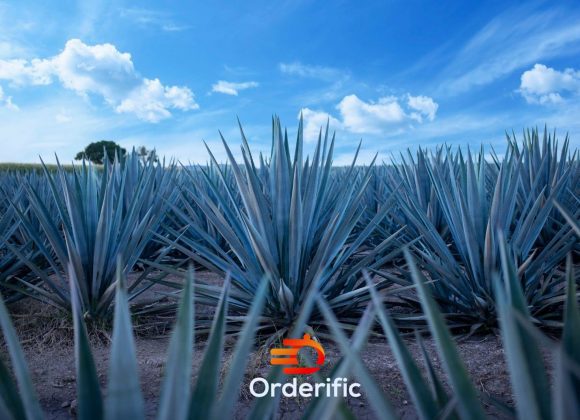Introduction
Welcome to your comprehensive guide to understanding the Oregon Liquor Control Commission (OLCC) — the nexus of alcohol control, public health, and law enforcement in the Beaver State. With its hands on everything from the service permit application process to the regulation of recreational marijuana, it plays a pivotal role in Oregon’s alcohol and cannabis industries.
Whether you’re an employee in a liquor store looking to secure an alcohol service permit, an entrepreneur with a keen interest in wine, beer, or spirits, or simply an Oregonian curious about how alcohol laws affect your local community, this guide is for you. We’ll delve into the application procedures, the role of the OLCC in enforcing regulatory compliance among licensees, and its work with the Oregon Health Authority to ensure the safe sale and consumption of alcoholic beverages.
The Role Of The OLCC In Regulating Alcohol In Oregon
The Oregon Liquor Control Commission, officiated by its commissioners including Craig Prins and Chris Mayton, spearheads the regulation of alcohol in the state. As an OLCC official would tell, part of its main responsibilities include ensuring that alcoholic beverages, including rare whiskey and bourbon, are served responsibly by employees of liquor stores.
To achieve this, they have an extensive service permit application process. From the occasional permit for serving rare bottles at a one-off event to the more permanent liquor license required by retailers, the application process is stringent and thorough. Any potential employee or licensee can access the service permit application forms and other necessary contact information on the official OLCC website.
One significant aspect of the application process is the thorough investigation to ensure public safety. This could range from a criminal investigation to an internal investigation, depending on the scenario. The enforcement of these regulations is a collaborative effort with local government bodies, such as the Oregon Department of Public Health and the Oregon Health Authority.
The Impact Of The OLCC On The Alcohol Industry In Oregon

The Oregon Liquor Control Commission (OLCC) plays a vital role in the alcohol industry in Oregon. With its strict procedures and regulations, the OLCC ensures public safety and promotes responsible sale and consumption of alcohol. From the moment a bottle of bourbon is handled by a store employee to the high-level decisions that shape public health policy, the OLCC’s influence is far-reaching. It serves as a crucial component in maintaining the integrity and reputation of Oregon’s alcohol industry.
The OLCC’s responsibilities extend beyond mere regulation. It actively collaborates with industry stakeholders, conducts inspections, and enforces compliance to uphold high standards. By licensing and overseeing alcohol establishments, they ensures that they operate within legal boundaries and adhere to best practices.
Moreover, they play an important role in preventing underage drinking and reducing alcohol-related harm in the community. Through education and enforcement efforts, it promotes responsible alcohol consumption and works towards creating a safer environment for all Oregonians.
Understanding OLCC Regulations: What Businesses Need To Know
Navigating the regulations set by the Oregon Liquor Control Commission (OLCC) is a crucial step for businesses. This includes everything from breweries, wineries, to liquor stores. The OLCC has comprehensive guidelines covering legal age restrictions, hours of operation, advertising norms, and rules for serving alcohol responsibly. They also require businesses to submit regular reports and maintain detailed records to ensure transparency and accountability. Failure to comply with these regulations could result in penalties, including fines and license revocations. Businesses, therefore, should prioritize understanding and adhering to OLCC’s regulations to ensure smooth operations.
Conclusion
In conclusion, through regulations and enforcement, The OLCC plays a vital role in ensuring that alcohol industry operates responsibly. It protects public health and safety by ensuring that businesses comply with the law and serve alcohol responsibly. From the employee looking to secure a permit, entrepreneur contemplating a venture in the alcohol industry, everyone must understand how the OLCC operates. As a regulatory body, it has far-reaching effects on aspects ranging from public health to the industry’s economic pulse. Hence, it’s imperative to stay informed about the OLCC’s role and actions.
If you want to streamline your liquor store operations and need help navigating the OLCC application procedures, feel free to book a demo at Orderific to see how we can assist you. We offer comprehensive solutions, from helping with permit applications to ensuring you’re in full compliance with OLCC regulations. Let’s join hands to create a safer, more responsible Oregon.
FAQs
What is the OLCC?
The OLCC is the regulatory body overseeing the sale and service of alcohol in Oregon.
What is the history of the OLCC?
The OLCC, short for Oregon Liquor Control Commission, was established in 1933 following the repeal of Prohibition.
What is the role of the OLCC in regulating alcohol in Oregon?
The OLCC regulates the sale, distribution, and consumption of alcohol in Oregon.
What types of businesses does the OLCC regulate?
The OLCC regulates businesses such as breweries, wineries, and liquor stores in Oregon.













